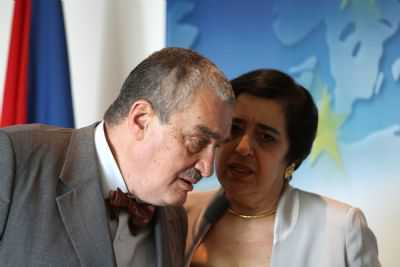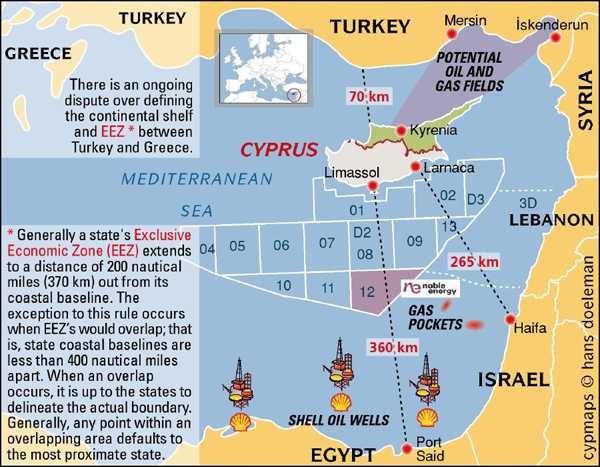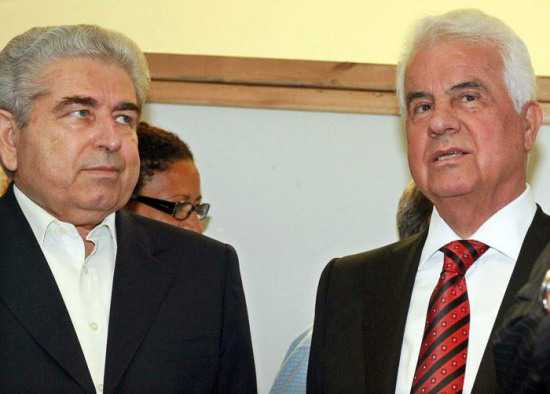Turkish gas drill in Cyprus hikes tensions
Turkey has begun drilling for natural gas in northern Cyprus, increasing tension across the east Mediterranean over control of offshore gas fields.
NICOSIA, Cyprus, April 27 (UPI) — Turkey has begun drilling for natural gas in northern Cyprus ratcheting up growing tension across the east Mediterranean over control of offshore gas fields that could transform the economies of a region long barren of energy resources.
The Turks control the northern one-third of Cyprus, where they’ve stationed 30,000 troops since 1974 when they invaded the island, which is dominated by Greek Cypriots.
Ankara calls its zone the Turkish Republic of Northern Cyprus but it’s recognized only by Turkey. The Greek Cypriot government in Nicosia is internationally considered the sovereign authority.
Technically, that means the Turks are drilling illegally.
That exacerbates a spider’s web of territorial and maritime disputes in the east Mediterranean that intersect with long-running and potentially explosive conflicts between Israel and its Arab neighbors and the ancient rivalry between Turkey and Greece.
Israel made the first discoveries off its northern coast in 2009-10 with the Noble Energy Corp. of Houston striking major reserves.
The Tamar field contains an estimated 9 trillion cubic feet of gas but the nearby Leviathan field has 17 tcf, the biggest strike made so far in the region. Four subsequent finds have boosted estimated Israeli reserves in the Levant Basin to 35 tcf, worth in excess of $130 billion and enough to turn the once energy-poor Jewish state into an exporter.
The Turks launched their drilling in the TRNC Thursday, sharpening the swelling dispute over who has rights to the island’s potential energy riches and setting back hopes of reconciliation between the two communities and the states that support them.
Turkish Energy Minister Taner Yildiz declared the onshore well operated by the state-run Turkish Petroleum Corp. has “strategic significance and we attribute great importance to it.”
Cyprus could be sitting on enough natural gas to last it 200 years.
When the Greek Cypriots, defying Turkish warnings, began exploration of the southernmost of their 12 maritime blocks in 2011, Turkey sent a seismic vessel escorted by a warship into Greek Cypriot waters and warned it would “retaliate even more strongly” to any further drilling.
Israel and Cyprus, where Noble Energy made a strike of 5 tcf-8 tcf recently, are collaborating on plans to jointly export their gas to Europe via an underwater pipeline to Greece.
Another option is building a liquefied natural gas plant, possibly offshore which would make it the world’s first floating LNG terminal — and a juicy target. China’s interested in building it.
The economic cooperation between Israel and Cyprus, 300 miles to the north, is also forging a new military alliance between the Jewish state and Greece.
This is rapidly replacing the strategic alliance between Israel and Turkey that was formalized in 1996, but broke apart in May 2010, in large part because of growing antagonism by Turkey’s Islamist-led government.
So a major realignment in the eastern Mediterranean appears to be under way as the region’s energy resources are uncovered.
The U.S. Geological Survey reported in 2010 that the Levant Basin, embracing Syria, Israel, the Gaza Strip and Cyprus, contains an estimated 122 tcf of gas and some 4 billion barrels of oil.
In February, Israel, a major regional military power, signed a military cooperation pact with the Greek Cypriots, whose military forces are miniscule. This allows Israeli ships and aircraft to use Cypriot territorial waters and airspace.
That will probably open the way for Israel to deploy F-16s on the island if the Turks get pushy there. Turkey has a squadron of its own F-16s in the TRNC.
Meantime, the Israelis are making elaborate plans to defend their offshore fields against terrorist or missile attacks.
For now at least, the main danger is seen to be Hezbollah, the Iranian-backed movement in Lebanon. Beirut claims that Leviathan, as designated by Israel, overlaps into 330 square miles of Lebanese waters.
The Lebanese are preparing to launch their own exploration in waters likely to hold major gas fields, adding to the complex energy mosaic.
Hezbollah, which has fought Israel since 1982, says it won’t allow the Jewish state to “plunder” Lebanese resources.
Israel took part in naval exercises in the region with U.S. and Greek warships March 25-April 5 that included protecting offshore gas platforms. Turkey was excluded.
The Israeli air force has held several joint maneuvers with the Greeks, where once they trained with the Turks.
via Turkish gas drill in Cyprus hikes tensions – UPI.com.






